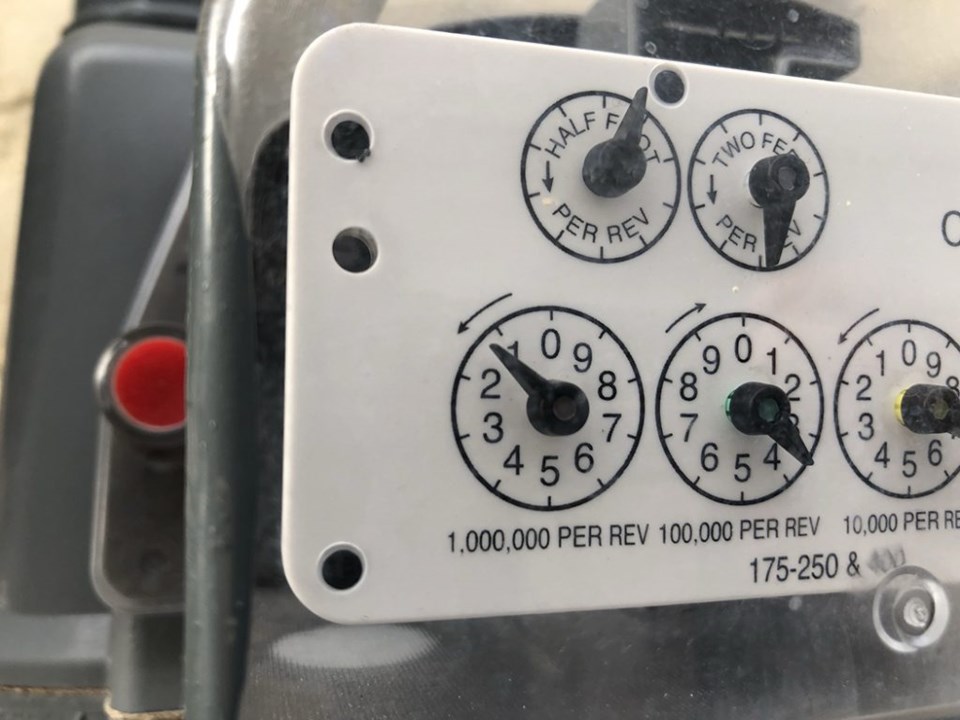
Jason Stockfish, Local Journalism Initiative Reporter | [email protected]
Water, wastewater and recycling users in Jasper will see their billing model change from a flat rate to a Connection, Capital and Consumption (CCC) model.
At its Feb. 3 meeting, council voted on Coun. Ralph Melnyk’s motion to give third reading to the bylaw, implementing a new utility rate model that will have users billed in different tiers according to utility line size and overall usage.
Noting that the municipality “is responsible for informing customers about what their rates will be,” CAO Bill Given stated that council needs to give “a reasonable heads up to utility customers about what their charges are going to be.”
In addition to needing to inform its customers of the model by which their rates will be calculated, Given added that the municipality also needs to know that the necessary funds are incoming to responsibly operate the utilities.
Given explained that if council was unable to decide on a model moving forward, it might be best to go back to the flat rate for 2022 to ensure that customers would know how their bills are determined and so that the municipality could be confident in its finances.
In the end, the motion passed 5-2, but not before a discussion that ended with councillors Helen Kelleher-Empey and Rico Damota voting against administration’s recommendation to implement the CCC model.
Voicing a concern expressed by some residents, Damota noted the example that some newly constructed buildings in town were built with a two-inch service line for fire suppression, and if the connection fee is going to be based on the size of the service line, these customers would be levied at a significantly higher rate as a result.
“Just because there’s a two-inch pipe there for fire suppression, it doesn’t mean they’re necessarily going to use more water,” Damota said.
“I’m not prepared to make a motion when there’s that much of an inequity, and I want to hear more from other councillors to see if they have any input on that.”
Damota asked whether it was possible to look at addressing specific circumstances, one-offs, rather than creating sweeping measures that potentially create an unequal billing model.
“I think we need to move in this direction, but I’m wondering if we’re too aggressive,” Kelleher-Empey added.
“Especially coming out of COVID, I think a lot of people are concerned.”
Kelleher-Empey said many users have seen their other utility bills rise lately, and having an overly increased cost of water and sewer on top of those larger bills only adds to their concern.
“I find it hard to support (the CCC model) when we’re saying that some people are going to be seeing a 400 per cent increase and others aren’t.”
Kelleher-Empey also questioned whether raising the current flat rate model (the required 37 per cent to achieve the same financial goal) wouldn’t be the better approach until a more equitable solution could be found.
“I don’t know if I can support this, knowing that it’s flawed,” she said.
Damota raised the same concerns of inequity when he spoke against the motion and stated how council recently approved a 12.9 per cent increase in the budget that would affect many people.
“I am still wary about going forward with (this motion) in this particular format… because it’s going to affect the people most affected by the pandemic right now,” he said.
“I don’t want to ask them for the money up front and then give them a credit… I don’t want people to be adversely affected and so I can’t support this motion.”
Councillors who voted in support of the motion voiced their own apprehensions but also noted that their concerns could, and should, be addressed in the future as the CCC model rolled out and the data could be analyzed.
Melnyk said he wanted council to use the opportunity to test the CCC model, noting that councillors would have a commitment to review the bylaw after four billing cycles.
“We need to move forward to have the opportunity to test this in a real environment. We’d be going into what would hopefully be a regular year, and I think this is the year for us to try a new method because every year after this. we will need to continue to add capital dollars… to maintain our water treatment plant.”
Coun. Scott Wilson added his support to Melnyk’s motion while admitting there would be “some growing pains.”
Mayor Richard Ireland also voiced his support for the motion while noting his own concerns with inequities that may arise with the CCC model.
“This has been difficult. It has been before council for a very long time, and it has been challenging, but until very recently there were no numbers to attach to the theoretical discussion,” Ireland said.
Ireland explained that he would support a motion in the future to provide credits to consumers who were charged a disproportionate amount as a form of redress for inequities in the model.
“That’s maybe not perfect, but it is recognition that we don’t wish to create inequity in a community and in fact this entire bylaw is predicated on finding more equity in the system,” Ireland said.
“My concern is that even by delaying, we set up a hugely inequitable situation. I don’t know how we proceed with the budget. Customers have to know what to expect, and we have obligations to raise a certain amount of revenue.
“Nothing is going to be perfect and it will take time to adjust.”
Editor's note: The article initially reported a 4-2 voting split for council, which was actually a 5-2 split.



